Mental health support by youth, for youth in Canadian Arctic
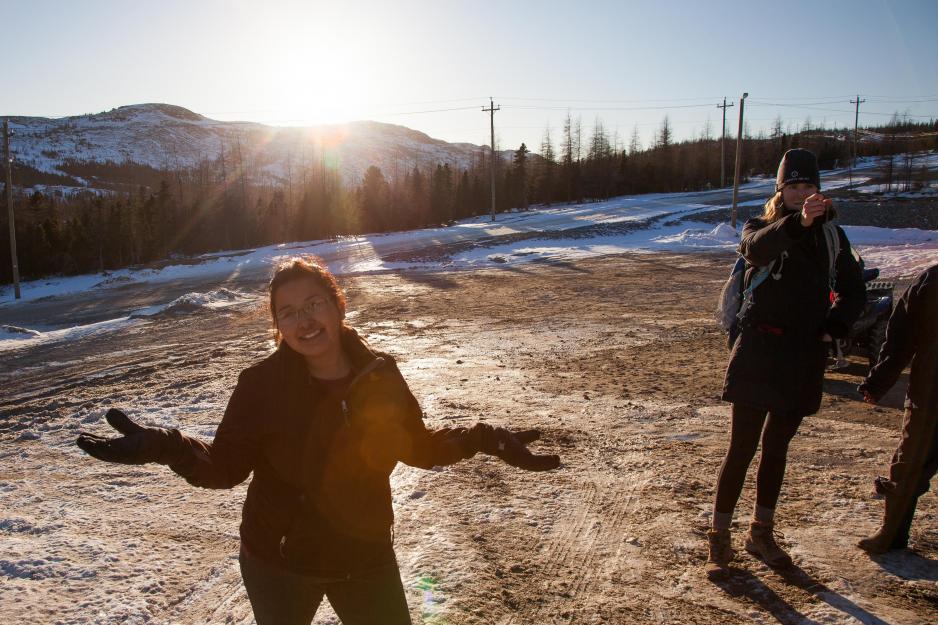
On a photography walk during a workshop in Nain, Nunatsiavut (Labrador). (Credit: Workshop participant)
Youth-run charity North in Focus has an innovative way to help young people living in Northern communities in Canada break down stigma around mental illness and stay healthy–and it all starts with community, creativity, and storytelling.
Youth-run charity North in Focus has an innovative way to help young people living in Northern communities in Canada break down stigma around mental illness and stay healthy–and it all starts with community, creativity, and storytelling.
Mental health is a serious concern throughout the circumpolar Arctic, but especially for Indigenous youth, whose rates of mental illness and suicide are on the rise. This is the case in northern Canada, but while Northern communities have been sounding the alarm for decades, there have been major barriers to preventing and treating mental illness.
While there are many reasons for this, part of it has to do with stigma. According to a June report to the Canadian federal standing committee on Indigenous and Northern Affairs, suicides are underreported and sometimes officially recorded as, for example, an accident, which means that it’s hard to come up with an accurate picture of what is going on. Stigma also keeps people from talking about what they are going through, whether it’s about their own feelings or their reaction to the loss of a loved one, and leads to them feeling isolated from the community and at further risk.
Peer-to-peer mental health support
While the report recognized that Indigenous youth suicide and mental illness is a complex issue that requires understanding the impacts of colonialism and intergenerational trauma, as the report also notes, one approach that holds promise is community-driven health services.
A Canadian charity called North in Focus is one community-focused initiative that is having an impact. Run by youth, for youth, North in Focus runs mental health workshops in Northern Canada that emphasize the important role that relationships have in being a source of support and well-being.
Finance and Media Coordinator Eva Wu, who co-founded the charity in 2014, says that its peer-to-peer model is a "unique, but low-cost technique to approaching mental health care" that facilitates a network of support anchored in the relationships that young people already have within their communities. Having a peer support network in place can help people manage their mental health until a practitioner like a psychiatrist is able to visit the community.
But getting to the point where such a network exists is transformative in its own right, too. Wu says that it is commonly very difficult for people to open up about mental health because the smallness and tight-knit nature of Northern communities can amplify stigma because everyone knows each other or their family. But an initiative like North in Focus can act as a "kickstarter" for long-term impact because it gets youth talking together in a different way, which can lead to them feeling a stronger sense of understanding and support from each other.
Healing through art and the stories we tell
One of the best ways to do this is through shared activities and creativity. Arts therapy has been around for decades and helps people approach problems in creative ways that they might not be able to in more conventional therapy. While North in Focus doesn’t provide therapy, its other, linked component—photography workshops—is, as Wu puts it, a "tool for healing" in its own right because "at the end of the day, photography is a way to tell stories." Through a medium like photography, it’s possible to shape the narrative through which people view things like mental health.
It’s also no secret that finding expression in the arts can be very empowering. But having a lens—in this case, literally—through which to share one’s own unique perspective on the world doesn’t just affirm the value of your own point of view: it’s also fun. And as the participants of previous workshops in Nunavik (northern Québec) and Nunatsiavut (northern Labrador) have found, it’s easy for that to turn into strong friendships.
North in Focus is currently gearing up to expand its two-week workshops into ones that run for a full month, with plans to hold the next round in Iqaluit and Baker Lake, Nunavut, next spring.
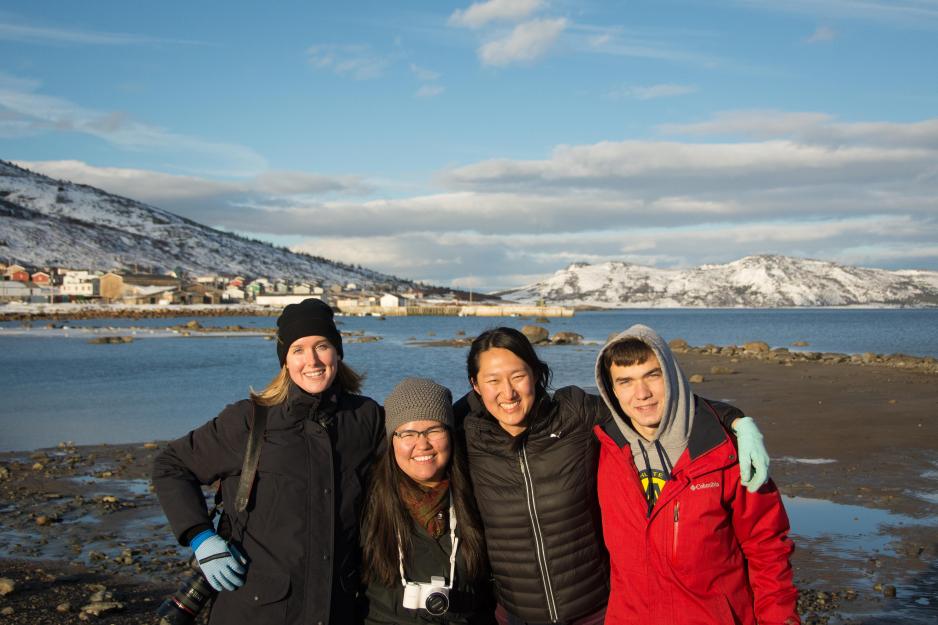
North in Focus’s main organizers. From left: Gabrielle Foss, Ashley Cummings, Eva Wu, and Patrick Hickey.
(Credit: Jonathan Lidd)
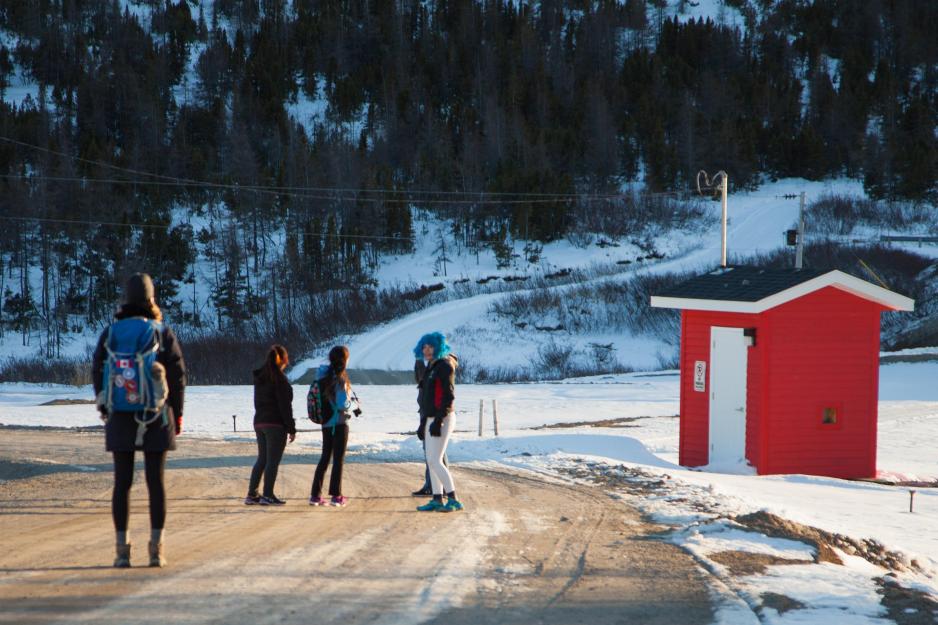
On a photography walk during a workshop in Nain, Nunatsiavut (Labrador).
(Credit: Workshop participant)
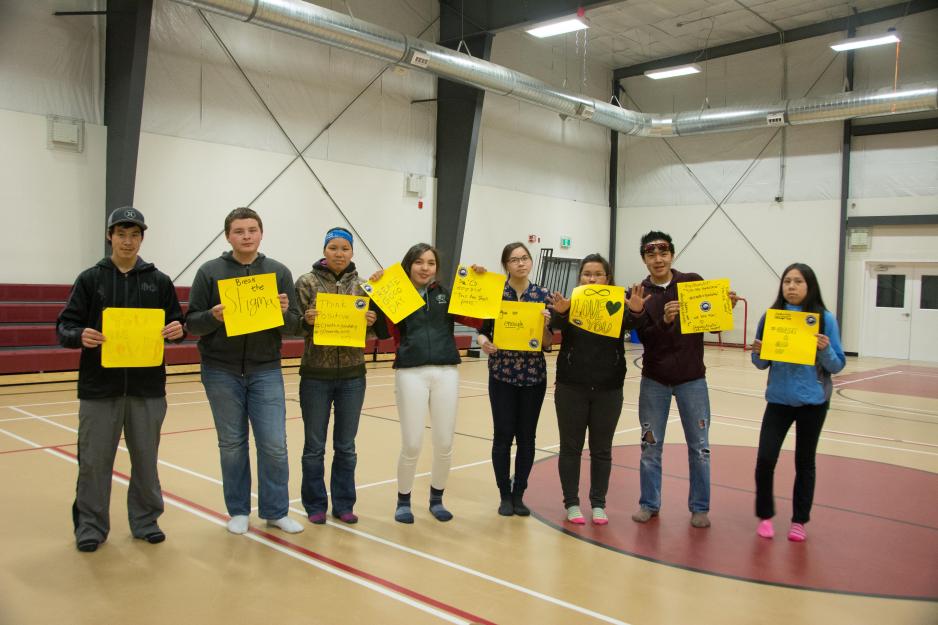
Workshop participants spread positive messages with Post-It notes.
(Credit: Eva Wu)
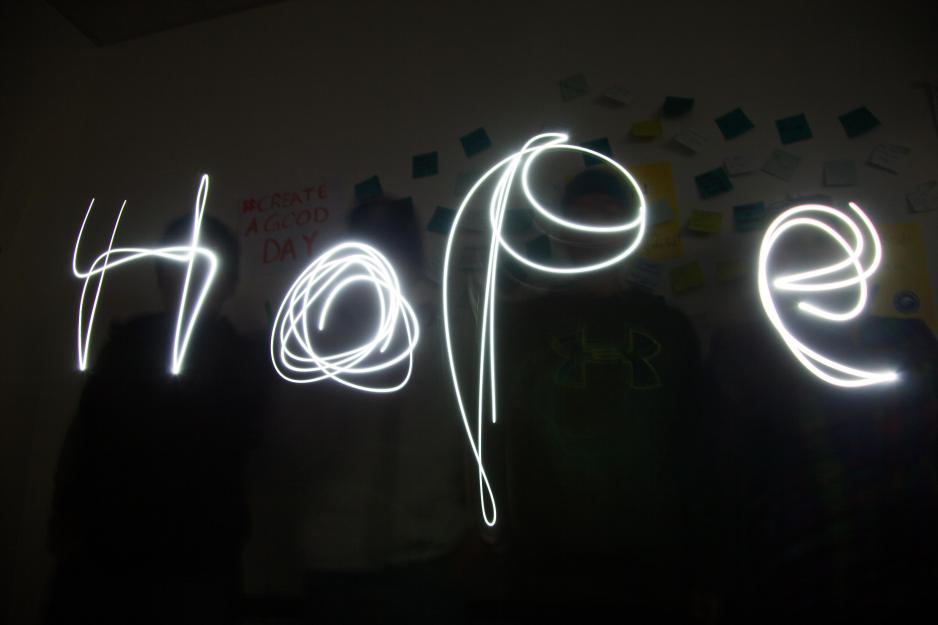
Focusing on hope is one way to shift mental health narratives.
(Credit: Workshop participant)
